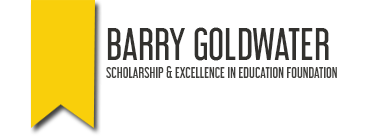“Receiving the Goldwater Scholarship was the positive confirmation of my skills as a young researcher and promise as a prospective physician scientist that I needed to pursue a lifelong commitment to the advancement of science and medicine.”
In 2017, I was awarded the Goldwater Scholarship for my research projects conducted at Texas Tech. These included the synthesis of superparamagnetic nanoparticles for the magnetothermal treatment of polymicrobial infections and the synthesis of a novel three-coordinate Cu(I) complex with unique photochemical and catalytic properties. I was able to pursue my interests in biotechnology research further at the Wyss Institute of Biologically Inspired Engineering as a 2017 Harvard Amgen Scholar, working on the development of an immunological electrochemical sensor for the detection of biological markers of anaphylaxis.
The research I conducted as an undergraduate was invaluable to my growth as a young scientist. It allowed me to begin to discover the tools of modern science and to think about ways to apply these to help so many more people than the number of patients I could see in one lifetime as a physician. In the end, receiving the Goldwater Scholarship helped me to define and articulate the path I wish to pursue: practicing at the frontlines of medicine by developing the therapeutic and diagnostic tools of the future. This can only be achieved through devotion to science and research.
After graduating with a Bachelor of Science in biochemistry, I will continue my academic career by pursuing an MD/PhD. at the UCLA-CalTech combined Medical Scientist Training Program. Clinically, I am interested in pediatric surgery, and therefore, hope to use my background in materials science and nanomaterials design to craft new “theranostic” techniques to help prevent young patients from experiencing post-operative complications, including antibiotic-resistant bacterial infections. I think that now is as exciting a time as ever to become a physician scientist. The emerging fields of nanomedicine and synthetic biology are going to craft the future.
When I am not in the laboratory or the operating room, I enjoy playing the guitar. I learned to play my instrument when I was 10 years old. I find this activity an invaluable tool to bring people together, to comfort others, and to relieve stress. It also happens to increase dexterity and hand-eye-coordination, two qualities important to any prospective surgeon and glove-box scientist.
Another love of mine, in addition to science and medicine, is the ability to creatively think about the future via writing science fiction. In May 2018, I completed my Honors College thesis: a science fiction novel which artistically examines such topics as breaches in ethics in biotechnology research and disparities in access to the products of the biotech and “Big Pharma” industries.

